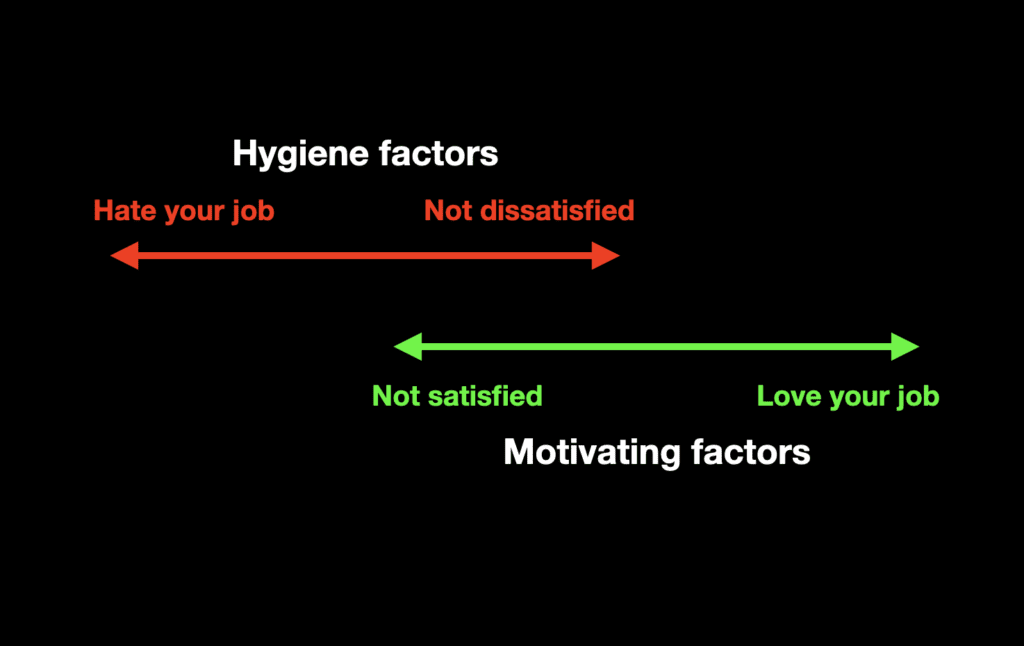
WHY YOU CAN BE MOTIVATED AND UNMOTIVATED AT THE SAME TIME
It’s normal to feel a love-hate relationship with your work, your school, or other aspects of your life. To feel motivated and unmotivated at the same time. This article explains where to put your focus to best improve your motivation.

I struggle with motivation. There, I said it.
Some days I wake up pumped and ready to go. I get a ton of stuff done. I’m super-productive.
Other days I wake up feeling slow and negative and have trouble getting started.
When I worked at Apple, I generally felt motivated to improve our processes, complete projects, and get better. I enjoyed going to work. But when I talked about work I would find myself detailing all the reasons it was frustrating or stressful. Clearly I was experiencing both at the same time. I would get critical of myself because I had a great salary and worked with a great team, so why wasn’t that enough?
I sometimes experience these feelings with Go Be More as well. I love what we’re doing and yet there are a lot of aspects of running a startup that are frustrating or stressful or draining.
Whether it’s school, sports, my marriage or my work, I’ve experienced these swings in motivation. I bet you have, too.
I used to think of motivation as being a spectrum, like the picture above. Sometimes I would be on the positive side, other days on the negative side. But there were many days when I felt caught on both extremes at the same time. It never made sense to me why I could love and hate what I was doing at the same time.
It turns out the reason is actually pretty simple.
(Our latest podcast goes much deeper on this topic. Check it out below!)
WHAT IS TWO-FACTOR MOTIVATION?
Two-factor motivation theory is a theory of motivation developed by psychologist Frederick Herzberg. He studied how people felt about their work and what motivated them to do it.
He ultimately determined that motivation is not one spectrum, but two distinct spectrums that affect how we feel. And because these two spectrums are distinct, our motivation can be a wide variety of combinations.
I’ve drawn it out in a picture here, which is what I call the “dual spectrum” model.

WHAT ARE HYGIENE FACTORS?
Hygiene factors consist of things like: our status, our salary and compensation, our work environment, our company policies, and how management supervises us. They are typically external factors that have to do with the conditions in which we work.
Here’s the important thing: the hygiene factor spectrum goes from “I Hate My Job” to “I’m Not Dissatisfied”. When hygiene factors are good, they can motivate you a little. But when they are bad they can de-motivate you A LOT.
Terrible hygiene factors can lead us to hate our jobs. If you hate your job, there’s a good chance it’s because there are hygiene factors in dire need of improvement. One way to boost your motivation quickly is to fix them.
But these are just one set of factors. The other set is equally important.
WHAT ARE MOTIVATING FACTORS?
Motivating factors consist of things like: personal growth, challenging work, passion for your work, responsibility, and recognition. They are not always internal, but they have a strong connection to us as individuals. The specifics of what motivates me might be different from what motivates you.
Unlike hygiene factors, the motivating factor spectrum goes from “I’m Not Satisfied” to “I Love My Job”. When you don’t have strong motivating factors, you find yourself just “showing up” and often doing the minimum. You clock in, clock out, and take your paycheck.
But when your motivating factors are really strong, you love what you are doing. You feel there is a sense of purpose, you are challenged and growing and taking on responsibility. It’s these feelings that create the intense positive motivation you experience in your work.

THE OPPOSITE OF POSITIVE IS NOT NEGATIVE
One of the key lessons here is this: the opposite of positive is not always negative. Often, the opposite of positive is neutral, average, invisible, meh.
There are things that make us sad and things that makes us happy. Eliminating sad things doesn’t make us happy. Only adding happy things makes us happy.
There are behaviors that make us productive and behaviors that makes us unproductive. Eliminating unproductive behaviors is important, but it doesn’t make us productive. Those are different behaviors.
There are factors that motivate us and factors that decrease our motivation. It’s not that one is more important than the other. They’re just different, and need to be treated differently.
We can’t ignore the negatives, because they really do drag us down. But we also can’t put all our emphasis on those, because removing a negative just gets us back to neutral. We need to actively create positives, too.
But here’s the rub. It’s easy to focus too much on the hygiene factors, because they frustrate us so much. Yet ignoring them is clearly not a long-term solution. So what should we do?
GET THE HYGIENE FACTORS TO GOOD ENOUGH, THEN SHIFT FOCUS
If your hygiene factors are terrible, you will struggle to truly and consistently stay happy and motivated. So it makes sense to start there. You can start with something simple, like adding in opportunities for play or friendly competition. But don’t think you need to have the best salary, or the best working conditions, or the best manager to be happy in your work.
Similarly, if your responsibilities, household chores and your living environment are dragging you down, try to fix them. But don’t be under the illusion that they will ever make your marriage or your family life great.
The simple truth is: even the best hygiene factors will only get you to “Meh.”
Once your hygiene factors are “good enough,” put your energy into improving your motivating factors. Find opportunities to grow, challenges to pursue, and responsibility to take on. If you can’t find enough of them in your actual work, focus on something related: develop your skills network and enhance your multiplier skills, build your mastery in a new area, and find ways to maximize and minimize your life.
Spend some time focusing on the activities that will make a positive difference. If you don’t, you’ll just find yourself stuck in neutral.
(If you liked this topic, our latest podcast goes deep on it and provides many more examples.)

BRYAN GREEN
Bryan Green is the co-founder, Editor, and COO of Go Be More. He usually feels motivated to write articles, and not so motivated to promote them. You can help him by sharing them 🙂 You can give him feedback at bryan◎gobemore.co or on our Facebook page.


